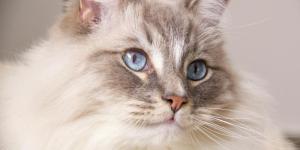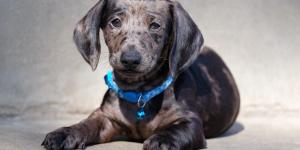Common Health Issues Affecting French Bulldogs



See files for Dogs
French Bulldogs are adored worldwide for their quirky charm and loyalty, but caring for them comes with challenges. This breed’s distinctive features—such as their flat faces, compact build, and skin folds—make them susceptible to specific health issues. Skin irritations, respiratory difficulties, and joint problems are among the most common concerns. Owners who understand these risks are better prepared to manage symptoms and help their Frenchies live comfortably. Knowing what to look for can make a big difference in preventing or addressing these health challenges early.
In the following AnimalWised article, we will discuss the most common health issues affecting French Bulldogs, along with treatment options and prevention tips.
Respiratory issues in French Bulldogs
French Bulldogs are prone to several respiratory issues due to their short muzzles and flat faces, which make breathing harder. Let's zoom in on the most typical scenarios:
Brachycephalic Airway Syndrome (BAS)
BAS refers to a group of issues that affect the airways of brachycephalic breeds like French Bulldogs. The short snout can lead to narrowed nostrils, an elongated soft palate, and a smaller trachea, all of which limit airflow.
These anatomical abnormalities can lead to difficulty breathing and serious respiratory problems.In severe cases, it can cause exercise intolerance, heat stroke, and even collapse.
- Symptoms: these include noisy breathing, difficulty exercising, fatigue, and gagging. Dogs may also show signs of distress, like cyanosis (blue gums or tongue).
- Treatment: it varies. In extreme cases, surgery might be needed to widen the nostrils or shorten the soft palate. Managing the dog’s activity and keeping them cool is also important.
Laryngeal Paralysis
In this condition, the muscles controlling the larynx become weak or paralyzed, making it difficult for a dog to breathe. The larynx contains a pair of vocal folds that open and close to allow air to pass through. In dogs with laryngeal paralysis, these vocal folds fail to open fully, restricting airflow.
In French Bulldogs, this condition is often exacerbated by their brachycephalic (short-nosed) anatomy. The condition may be congenital or develop as the dog ages.
- Symptoms: these include a hoarse bark, noisy breathing, coughing, and difficulty swallowing. Dogs may have trouble catching their breath. Some dogs might even experience increased sensitivity to heat.
- Treatment: in mild cases, managing the dog’s weight and avoiding stress can help. Severe cases may require surgery to keep the larynx open.
Collapsed Trachea
A collapsed trachea is a common respiratory condition in French Bulldogs. It happens when the cartilage rings that make up the trachea weaken and flatten. Obesity or respiratory infections can make the problem worse. This narrowing makes it difficult for the dog to breathe, leading to a variety of symptoms:
- Symptoms: it can cause a cough, wheezing, and breathing problems. Dogs with this condition may also gag or vomit.
- Treatment: it includes cough suppressants and anti-inflammatory drugs. In severe cases, surgery to stabilize the trachea might be necessary.
Did you know that many popular dog breeds share similar characteristics with French Bulldogs? Explore other flat-faced breeds in our next article.

Skin and coat conditions affecting French Bulldogs
French Bulldogs are particularly prone to skin and coat issues due to their numerous skin folds, which create warm, moist environments that are perfect for bacterial and fungal growth. This can lead to infections, inflammation, and skin irritation.
Not only that, but their delicate skin is more susceptible to dryness, irritation, and other skin problems. Let us take a closer look at some of these issues:
Skin infections
As mentioned earlier, French Bulldogs are prone to bacterial and fungal infections due to the moist environment created by their skin folds.
- Symptoms: these include redness, swelling, discharge, and an unpleasant smell. The affected areas are usually found around the face, ears, and tail.
- Treatment: it typically involves cleaning and drying the folds regularly, using prescribed ointments, and sometimes oral antibiotics or antifungals if the infection is severe.
Hot spots (Acute moist dermatitis)
Hot spots are areas of inflamed skin that can develop quickly. They are usually caused by allergies, insect bites, or infection. French Bulldogs’ sensitive skin makes them more prone to these painful, itchy areas. Furthermore, other skin conditions that are common in this breed, such as bacterial infections or fungal infections, can contribute to hot spot development.
- Symptoms: these include red, moist, and raw patches of skin that may bleed or ooze.
- Treatment: you’ll need to clean the area and apply topical antibiotics. In some cases, your vet may suggest oral antibiotics or steroids if the condition is severe.
Seborrhea
Seborrhea is a condition that causes greasy, flaky, or scaly skin. It affects the sebaceous glands, which produce oil. This condition is far more common in dogs with sensitive skin, like French Bulldogs. However, hormonal fluctuations can affect sebum production.
- Symptoms: these include greasy patches of skin, dandruff, and hair loss. In extreme cases, it can result in a strong odor.
- Treatment: it involves regular bathing with medicated shampoos, and sometimes prescription medications or supplements to manage the condition. In severe cases, your vet may recommend oral treatments.
Curious about other wrinkly dogs? We’ve got an article that explores the breeds with the most distinct wrinkles.

Orthopedic problems in French bulldogs
French Bulldogs, with their distinctive compact bodies, are prone to several orthopedic issues. Their shortened limbs can lead to joint stress, potentially causing hip dysplasia or patellar luxation. Their barrel-shaped chest can strain the spine, leading to back problems. Additionally, their oversized heads can complicate childbirth and breathing, indirectly affecting their overall health and mobility. Let's explore some of the most common orthopedic issues of this breed:
Intervertebral Disc Disease (IVDD)
IVDD is a condition where the discs between the vertebrae in the spine become damaged or herniated. This puts pressure on the spinal cord and nerves, causing pain and potential paralysis. IVDD is common in French Bulldogs due to their short backs and long bodies.
- Symptoms: include back pain, difficulty moving, weakness in the legs, or even complete loss of mobility. The symptoms of IVDD can vary depending on the severity and location of the disc herniation.
- Treatment: the condition can be managed with pain relief, anti-inflammatory medication, and sometimes surgery to remove the damaged disc.
Hip and elbow dysplasia
Hip and elbow dysplasia occur when the ball-and-socket joint doesn't fit properly. This causes wear and tear, leading to arthritis and pain. Dysplasia is often genetic and affects many small breeds, including French Bulldogs.
- Symptoms: include limping, difficulty walking or running, and stiffness, especially after exercise.
- Treatment: it depends on the severity. Mild cases can be managed with weight control, joint supplements, and anti-inflammatory drugs. Severe cases may require surgery, such as hip replacement or joint stabilization.
Patellar Luxation
Patellar luxation happens when the kneecap (patella) slips out of its normal position, causing pain and difficulty walking. This condition can be congenital or caused by trauma. However, in the case of French Bulldogs, it is even more common due to their shortened limbs.
- Symptoms: limping, skipping, or sudden lameness in one leg.
- Treatment: in mild cases, management involves anti-inflammatory medication and physical therapy. In more severe cases, surgery may be needed to realign the patella and prevent it from dislocating.
If you're concerned about your dog’s mobility, check out our article on understanding and managing joint pain in dogs

Preventing and managing French Bulldog health issues
As mentioned earlier, French Bulldogs are prone to several health problems due to their unique body structure, which makes them more susceptible to obesity, respiratory issues, and joint problems. To help prevent these issues, the first and most essential step is to provide a balanced, nutrient-rich diet:
- Choose a high-quality, easily digestible dog food that provides adequate protein, carbohydrates, and fats.
- Avoid overfeeding to prevent obesity. Measure your dog's food and limit treats. It is essential to maintain a healthy weight to reduce the strain on your dog's joints and respiratory system.
- Consider adding supplements like glucosamine and chondroitin to support joint health, especially as your dog ages.
While French Bulldogs may not be as energetic as other breeds, they still need regular exercise to stay healthy. However, their brachycephalic structure makes them susceptible to heatstroke and respiratory problems. So keep these tips in mind when exercising your dog:
- Opt for short, gentle walks or indoor play sessions.
- Avoid strenuous activities, especially in hot weather.
- Keep your dog cool and hydrated, especially during hot weather. Consider using air conditioning to maintain a comfortable indoor temperature.
And finally, regular veterinary check-ups are essential to monitor your French Bulldog's health. Even if your dog appears healthy, annual or semi-annual visits can help identify potential health issues early on. Did you know that not all French Bulldogs look the same? Explore the variety of types in our next article.

This article is purely informative. AnimalWised does not have the authority to prescribe any veterinary treatment or create a diagnosis. We invite you to take your pet to the veterinarian if they are suffering from any condition or pain.
If you want to read similar articles to Common Health Issues Affecting French Bulldogs, we recommend you visit our Hereditary diseases category.
- UPEI - University of Prince Edward Island









